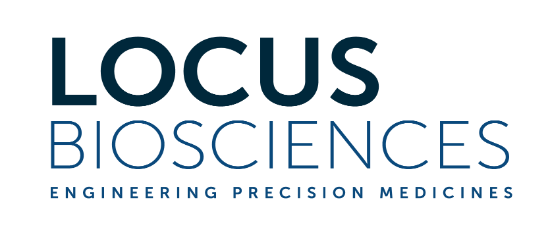
Milestone Reached: Locus Completes Gene Editing Trial Involving Therapy ‘Cocktail‘

Gene editing startup Locus Biosciences has completed the world’s first clinical trial of a recombinant bacteriophage therapy.
It is also the first time that a CRISPR-enhanced therapeutic has been administered in a clinical setting.
Billed as a “major milestone” for the field, the Morrisville company announced today that it had completed its Phase 1b trial of a potential treatment for urinary tract infections caused by Escherichia coli (E. coli) bacteria.
The study evaluated LBP-EC01, a bacteriophage “cocktail” that has been engineered with the gene editing technology CRISPR Cas3 to target the E. coli genome.
“We are still receiving and processing all of the microbiological data,” Dave Ousterout, Locus's chief scientific officer, told the North Carolina Biotechnology Center.
“The trial met all of its primary and secondary endpoints and demonstrated proof of mechanism.”
He said the trial was a multi-center, randomized, double-blind, placebo-controlled study to assess the safety, tolerability, and pharmacokinetics of LBP-EC01 in patients with indwelling urinary catheters, or requiring intermittent catheterization, and patients with asymptomatic bacteriuria caused by E. coli.
Thirty-six adult patients were enrolled.
The study had a secondary objective to evaluate the pharmacodynamics of LBP-EC01 and an exploratory objective to explore the influence of LBP-EC01 on the urinary tract microbiota.
Additional information on the trial can be found at https://clinicaltrials.gov/ct2/show/NCT04191148.
Locus is a 2015 spinout of North Carolina State University. It started with the help of a $75,000 Company Inception Loan from the Biotechnology Center. The Center followed that with a $250,000 Small Business Research Loan a year later.
The research labs of three of the four scientific founders of Locus have also received NCBiotechr grants totaling more than $300,000.
Ousterout said LBP-EC01 is being developed, initially, for the treatment of recurrent UTIs (two or more UTIs in six months or three or more in a year) caused by E. coli (more than 80% of UTIs are caused by E. coli). Locus expects to be the first company to pursue a “recurrent UTI” label with the FDA and plans to offer LBP-EC01 in IV and oral formulations, providing a solution for significant unmet medical needs across the UTI market where about 1/3 of patients experience recurrent UTIs. The company also plans to develop LBP-EC01 beyond UTIs and into any major body site infection where E. coli is a major contributor. Therefore, Locus expects to have a drug that is applicable across all sites of infection, with an unprecedented safety profile, that can address any E. coli infection regardless of MDR status. Not only will LBP-EC01 be used for MDR infections, but Locus expects that the safety profile will encourage physicians to use it across multiple patient populations.
Beyond E. coli, Locus is developing a suite of products targeting the ten most prevalent and high-need pathogens in the hospital infection market (four are currently underway). This off-the-shelf approach to precision medicine will allow physicians to address any bacterial infection without the need for broad-spectrum antibiotics, which drive up MDR, cause toxic side effects, and interfere with life-saving treatments such as immune-checkpoint inhibitors.
Beyond infectious disease, these modular drugs can be used to address a variety of microbiome-associated diseases. The E. coli product, for example, can be tuned to be used to target invasive E. coli strains in irritable bowel disease or pathogenic strains in cancer. Ultimately, Locus is working toward being able to address any connection between bacteria and disease across immunology, oncology, and neurology therapeutic areas.
